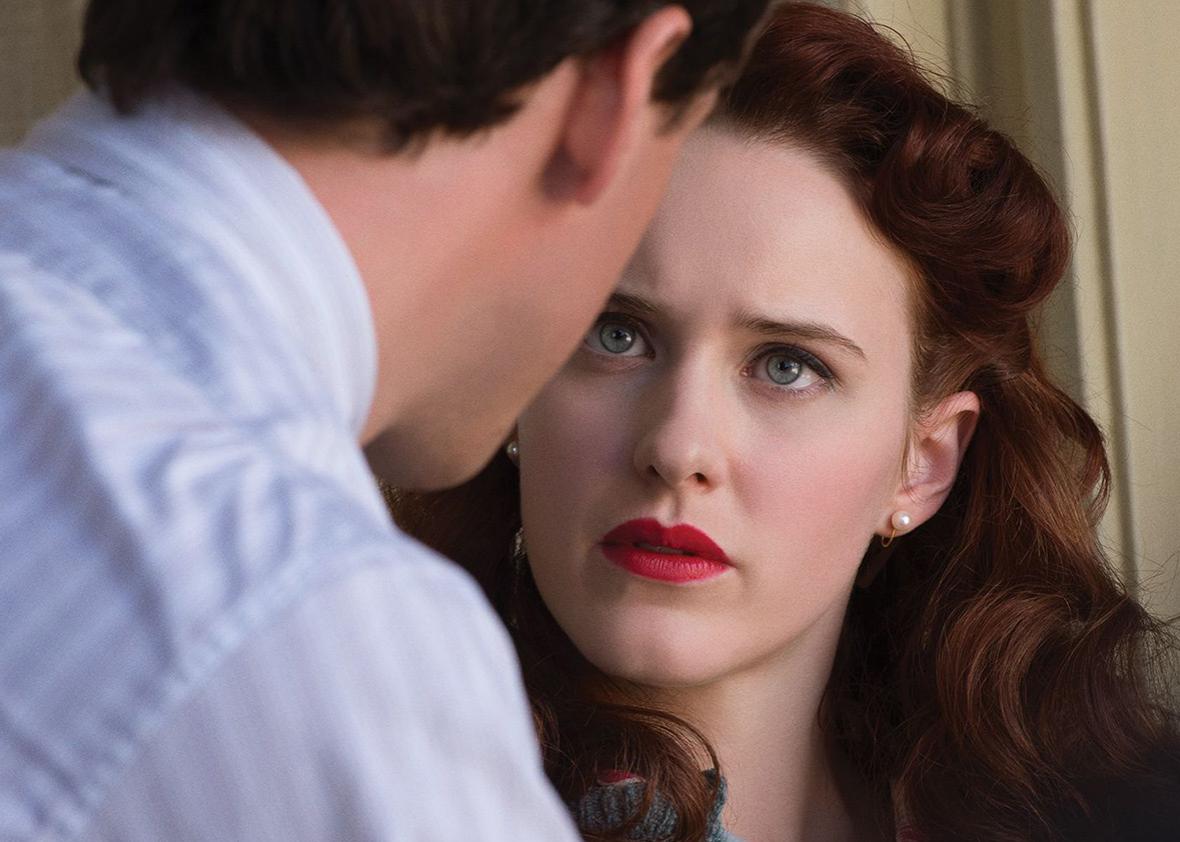Willa, you wanted to know what shows we changed our minds about this year, and also what shows deserve more attention. Halt and Catch Fire easily fits both those bills for me, but you’ve done such a good job articulating the reasons why that I’ll mention another underfed gem that got significantly better in its second season, even though I liked it last year too: WGN America’s Manhattan.
So here you’ve got another period drama about Complicated but Great White Men—specifically, the scientists who worked on the Manhattan Project—from a writer who already worked on one of those (Sam Shaw, formerly of Masters of Sex). And while it’s not perfect—it suffers from the Nucky Thompson Problem, where the most important character (rebellious scientist Frank Winter) is played by a fine actor (John Benjamin Hickey) doing good work, yet most of the time I’m more interested in every other person on the show—it looks amazing. Thomas Schlamme of West Wing fame is the lead director, and it’s become a whole lot more complicated and interesting as we’ve gotten to know all of the supporting characters (a more diverse lot all around) and their many conflicting agendas.
The problem is that it airs on a channel nobody pays attention to, even at a time when we’ve grown accustomed to bookmarking networks we’d rarely watched before (Sundance and Rectify, come on down!), and there’s no streaming option for the current season (Season 1 was and is on Hulu). So it’s hard to encourage people to catch up, especially when there are so many other shows of similar quality and ambition that are easier to watch. But that’s the problem when we live in an age of dramatic miracles: Any one miracle seems less special than it really should.
And, of course, the easiest place to watch anything, it seems, is Netflix, which leads to their shows being trumpeted above all others even if they’re not necessarily as great. Don’t get me wrong: They have some terrific stuff (even in an off year, Orange Is the New Black makes me so happy), and they also can try some really crazy experiments, like June’s aforementioned Sense8 (another show I changed my mind on, and mainly because the interface made it so easy to get past the slog and get to the orgies and birth canal scenes). But this idea that streaming networks (and this one in particular) are inherently superior to more traditional TV is nuts, and there are some very clear drawbacks to their setup.
As you mentioned, Willa, I nailed a manifesto to my virtual church wall expressing my concern that too many TV shows are being made with the binge in mind, and that the art of crafting an individual episode, even one that’s part of a serialized story, is being lost. Some of the problem is that episode orders are a bit too standardized, when a show like Jessica Jones (which I liked a lot) was trying to fill a 13-episode bag with only eight episodes’ worth of story, and something like Bloodline (where a few performances, and the ability to multitask through the many slow parts, kept me going) didn’t even have that much worthy material.
But this idea that a network is just going to give you 10 or 13 hours worth of … stuff, in relative chronological order, is frustrating. The Wire could get away with that, but The Wire is the exception to almost every rule in television. Even the streaming shows I’ve loved give me little reason to want to revisit them down the road, because once you know how the story goes, there’s not as much on the micro level worth a second look. (Transparent at least occasionally does distinctive episodes, even though Jill Soloway told me she tries to look at most of the season as one five-hour chunk.) Whereas I’ll happily cue up isolated episodes of Sopranos or Justified or West Wing if the mood strikes me, because I know a satisfying hour’s experience will await me, even if some or all of the plot threads will be continued in another episode I won’t be able to watch anytime soon.
This is less of a problem in comedy than drama, even though the lines between the two have become more blurred than ever. But whether something’s relatively episodic like Broad City, or more serialized like Review or Veep, there’s always some kind of basic structure in place for each half hour, on top of the collection of vicious punch lines and sight gags and performers making you marvel at how they can wrap themselves around a particular piece of dialogue.
We haven’t talked a ton about comedy yet (and I agree with Willa that Master of None is great in spite of some iffy supporting performances), and critical bias tends to lean more toward drama in most eras, so we can talk about which comedies, however we classify them, made us gasp for air (for me, it’d be the three I listed in the previous paragraph)—along with hearing other people’s picks for shows that turned them around in 2015.
Margaret, you’re up!
Alan
To get each new entry in the 2015 Slate TV Club in your inbox, enter your email address below:
